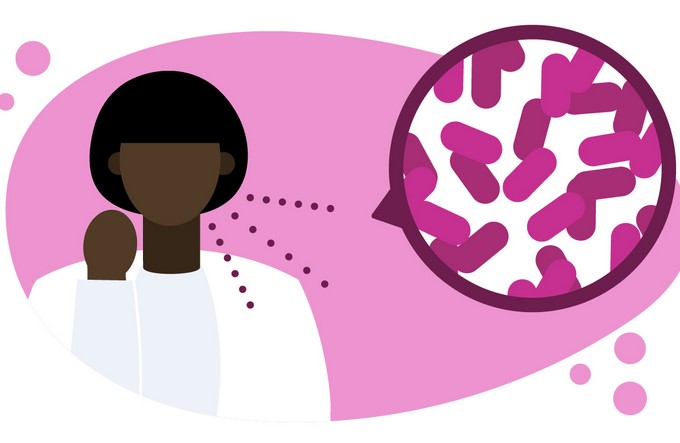Infectious disease doctors, also known as infectious disease specialists, play a crucial role in safeguarding public health by diagnosing, treating, and preventing the spread of various infections. These medical professionals possess specialized expertise in understanding the complex nature of infectious agents, their transmission mechanisms, and the body’s immune response. Through their knowledge and experience, infectious disease doctors contribute significantly to maintaining the well-being of individuals and communities alike.

Infectious diseases have shaped the course of human history, often leaving a trail of devastation in their wake. From the Black Death of the 14th century to the more recent Ebola and COVID-19 outbreaks, epidemics have highlighted the urgent need for experts who can understand, manage, and prevent the spread of infectious diseases. Infectious disease doctors, also known as infectious disease specialists, play a pivotal role in this endeavor. Their expertise is instrumental in not only treating infected individuals but also in preventing the emergence and spread of epidemics.
Understanding Infectious Disease Doctors
Infectious disease doctors are medical professionals who specialize in the diagnosis, treatment, and prevention of infections caused by various microorganisms such as bacteria, viruses, fungi, and parasites. These specialists undergo rigorous training that equips them with a deep understanding of the complex interactions between pathogens and the human body’s defense mechanisms.
Detecting and Diagnosing Epidemics
The first line of defense against epidemics lies in early detection and accurate diagnosis. Infectious disease doctors are at the forefront of identifying unusual patterns of illness that could signify the emergence of an epidemic. They possess the knowledge to recognize symptoms that may not conform to common infections, enabling them to pinpoint potential threats swiftly. Through thorough clinical evaluation and advanced diagnostic techniques, these experts can ascertain the nature of the infectious agent and devise appropriate strategies for containment.
Epidemic Investigation and Management
When a potential epidemic is identified, infectious disease doctors take on the role of medical detectives. They collaborate with public health agencies, epidemiologists, and other healthcare professionals to investigate the source, transmission routes, and risk factors associated with the outbreak. By meticulously analyzing data and tracing the spread of the infection, they gain insights crucial for devising effective containment measures.
In the case of highly infectious diseases, infectious disease doctors work in tandem with infection control teams to implement isolation protocols, protective gear guidelines, and quarantine measures. These actions not only safeguard healthcare workers but also prevent the wider dissemination of the disease within healthcare facilities and communities.
Guiding Public Health Policies
The expertise of infectious disease doctors is invaluable in shaping public health policies at both local and global levels. Their insights into the behavior of infectious agents, transmission dynamics, and population susceptibility guide the formulation of strategies aimed at preventing epidemics. During an outbreak, these specialists provide evidence-based recommendations to government agencies and health organizations, helping them make informed decisions about travel restrictions, vaccination campaigns, and other interventions.
Vaccination and Immunization
Vaccination stands as one of the most effective tools in preventing epidemics. Infectious disease doctors play a pivotal role in the development, distribution, and administration of vaccines. They contribute to the identification of target populations, the determination of optimal vaccine schedules, and the assessment of vaccine efficacy. By staying abreast of the latest research and advancements in immunology, these specialists ensure that the population remains protected against both well-known and emerging infectious threats.
Global Health and Preparedness
Infectious diseases recognize no borders, making global cooperation imperative in preventing epidemics. Infectious disease doctors collaborate with international health organizations and participate in research networks that facilitate the sharing of knowledge and resources. Their involvement in global health initiatives enhances our collective ability to monitor and respond to outbreaks effectively, regardless of where they occur.
Furthermore, infectious disease doctors play a key role in epidemic preparedness. They engage in scenario planning, simulate outbreak responses, and develop strategies to mitigate the impact of potential epidemics. By doing so, they ensure that healthcare systems are equipped to handle surges in patient numbers, maintain an adequate supply of medical resources, and establish communication networks for rapid response.
Research and Innovation
Infectious disease doctors contribute significantly to the advancement of medical knowledge through their involvement in research endeavors. Their studies delve into various aspects of infectious diseases, including pathogenesis, treatment modalities, and preventive measures. By uncovering the mechanisms underlying the spread of pathogens, these specialists pave the way for the development of novel therapies and interventions.
Conclusion
Infectious disease doctors play a vital and multi-faceted role in preventing epidemics. Their expertise spans the entire spectrum of infectious disease management, from early detection and diagnosis to epidemic investigation, public health policy guidance, vaccination efforts, and global health collaboration. These specialists are not only medical practitioners but also educators, researchers, and advocates for the health and well-being of communities worldwide. As the world continues to grapple with emerging infectious threats, the contribution of infectious disease doctors remains indispensable in safeguarding public health.